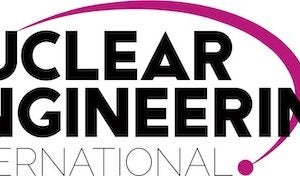Sellafield Ltd was looking for a way of encapsulating ‘hard to treat’ intermediate level waste (ILW).
The company is responsible for safely delivering decommissioning, reprocessing and nuclear waste management activities on behalf of the Nuclear Decommissioning Authority (NDA) at the Sellafield site in Cumbria. It was looking for an encapsulation and immobilisation process for ILW contained in steel boxes (skips) that are submerged in water.
Lucideon’s proprietary MIDAR technology was a potential solution. MIDAR is a low temperature chemical process used to consolidate aluminosilicate or similar materials into a ceramic-like solid with high strength and physical and chemical stability. It is a sustainable technology platform used in numerous applications, from encapsulating waste to acting as an alternative production process for construction products and ceramics.
The material resembles a ceramic but is produced without the high temperatures needed in conventional ceramic manufacturing.
The key chemical reaction is between alkalis and aluminosilicate materials. The aluminosilicates are initially broken down at room temperature into simple molecules which then polymerise to set, and cure to a solid. Curing is at different rates depending on the conditions but the normal curing range is between ambient temperature and around 80°C. There is also inherent heat generation as the curing reactions are exothermic.
Lucideon and Sellafield Ltd applied for Innovate UK (previously the Technology Strategy Board) funding project to demonstrate the feasibility of using MIDAR technology to encapsulate ILW. The task was to develop a fluid material that could be poured into skips containing spent ion exchange media, without disturbing the radioactive contents.
A feasibility study allowed a MIDAR slurry system to be developed on a laboratory scale, with the viscosity controlled. It was poured into the container without removing the contents, and it infiltrated the waste material and set to a robust solid fully encapsulating and immobilising the waste.
The resulting solid was free of voids and had very low leaching levels of radioactive elements, so it could be disposed of safely.
The key to success with MIDAR technology is balancing slurry viscosity, setting time, compressive strength and chemical durability. Each of these properties can be controlled through careful selection of the grades of raw materials and tailoring the ratios of the individual components to achieve the desired output.
With an encapsulation process, the slurry must be sufficiently fluid to allow complete infiltration of the skips, and remain workable, so it does not set and cure too early.
Encapsulation of ILW in skips with MIDAR has been successfully demonstrated to a 20kg scale and the next stage in its development is long-term stability assessment. Then the process will be scaled up to meet the challenges of deployment.
The Innovate UK-funded feasibility study was a success with further larger-scale trials anticipated following a successful outcome of the long-term tests.
More recently, MIDAR has been used to solve disposal problems in another waste area. A large-scale trial has demonstrated it can be used to solidify quantities of radioactive water, potentially making containment and disposal easier and safer.
MIDAR has proved to be a highly versatile material technology helping the nuclear industry deal with difficult problems. At a Nuclear Institute event in February – "A Celebration of Nuclear R&D" – Lucideon and Sellafield Ltd were presented with an award for the innovation demonstrated by the project.
Dr Ian Buckley, Head of Innovation in Materials at Lucideon, said: "A lot of the work we do at Lucideon is around developing the technologies of the future so it is fantastic that we are recognised in the nuclear industry as being at the forefront of innovation.
“MIDAR technology offers a potential long-term solution for immobilised storage of intermediate level waste. It is a ‘green’ process as it does not involve cement, helping to reduce energy usage and carbon emissions. It also has the potential to utilise waste raw materials to form the encapsulating matrix."
Dr Sean Morgan, Technical Manager at Sellafield Ltd, added: "Bringing Sellafield Ltd’s nuclear experience and knowledge of waste challenges together with Lucideon’s expertise in materials has allowed us, together, to develop a potential novel application for MIDAR technology. It’s good to see the hard work and innovative thinking from each of the two companies being acknowledged by this award."
The team believes the technology could help solve problems in a wider range of waste treatment scenarios.
About the author
Dr. Ian Buckley is head of innovation in materials at Lucideon. For further information about MIDAR visit www.lucideon.com/midar






